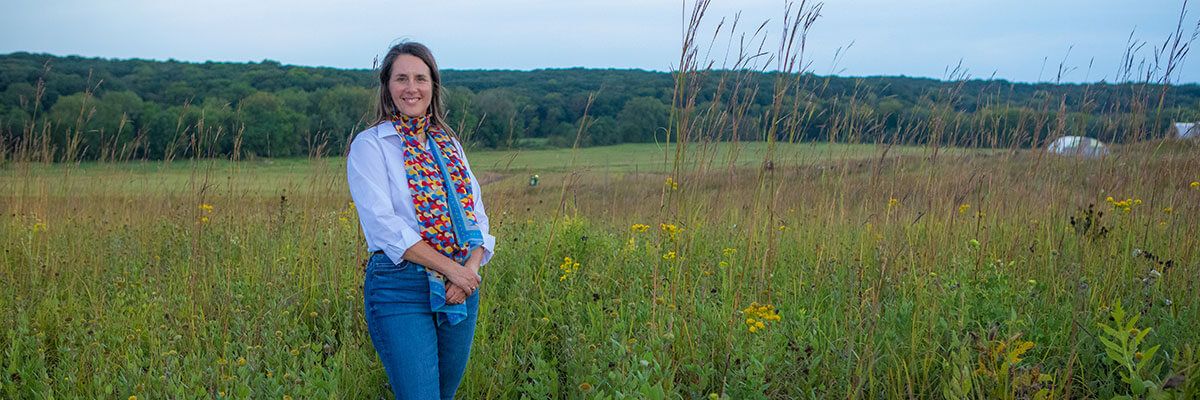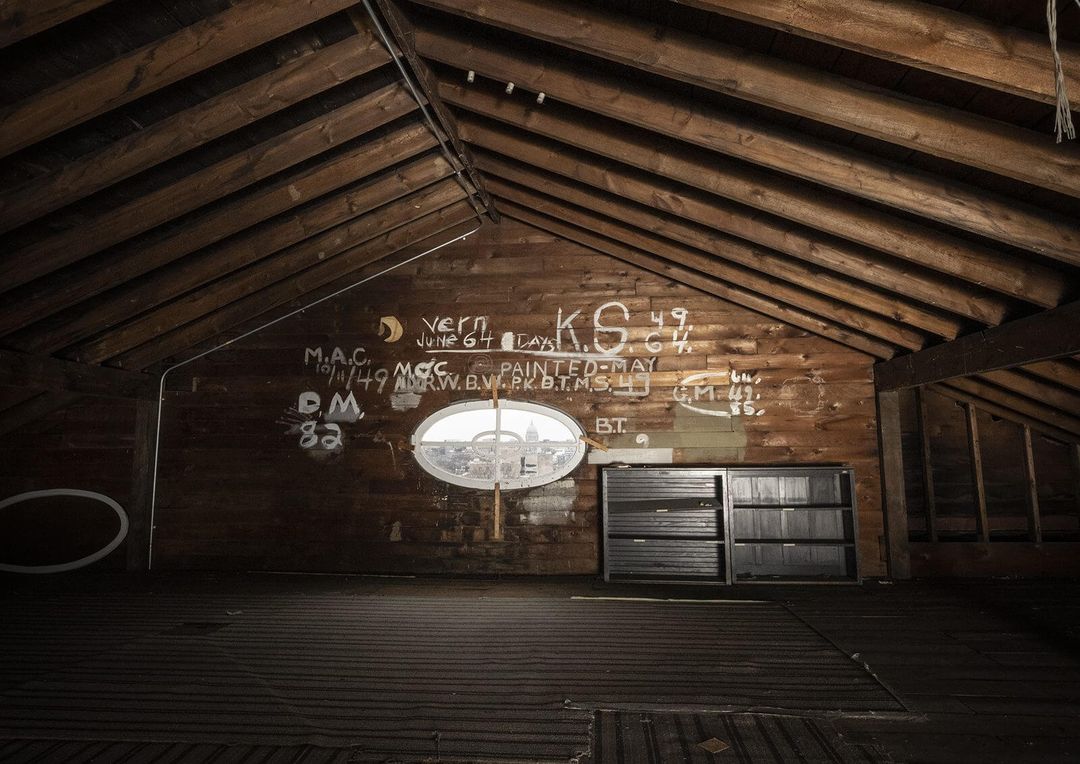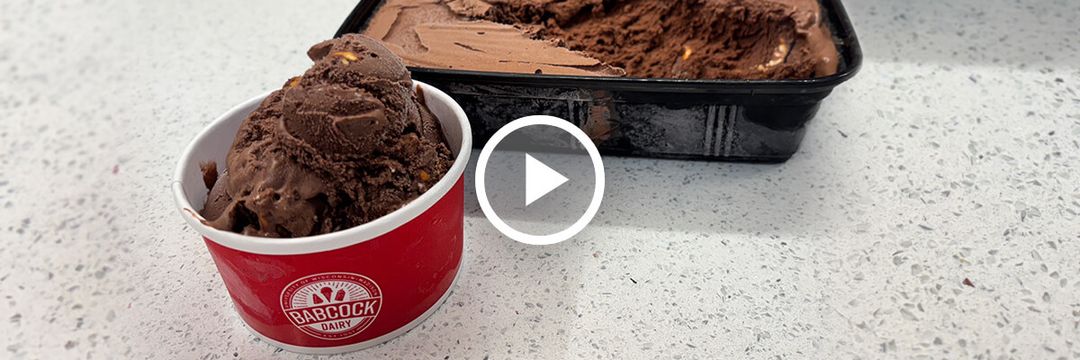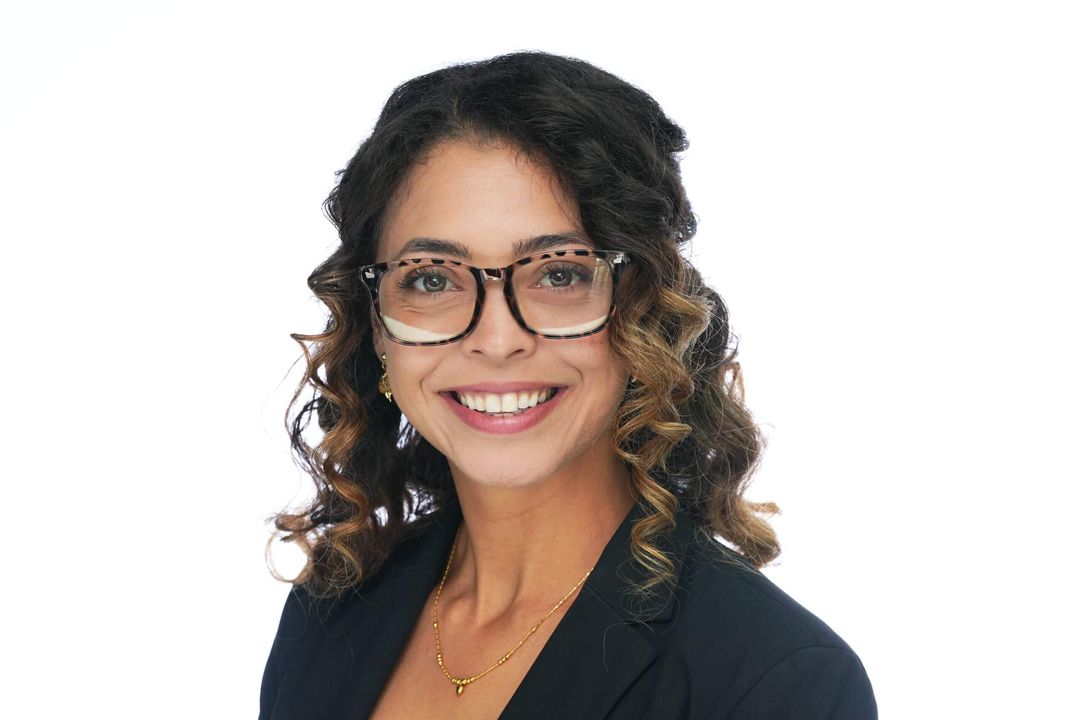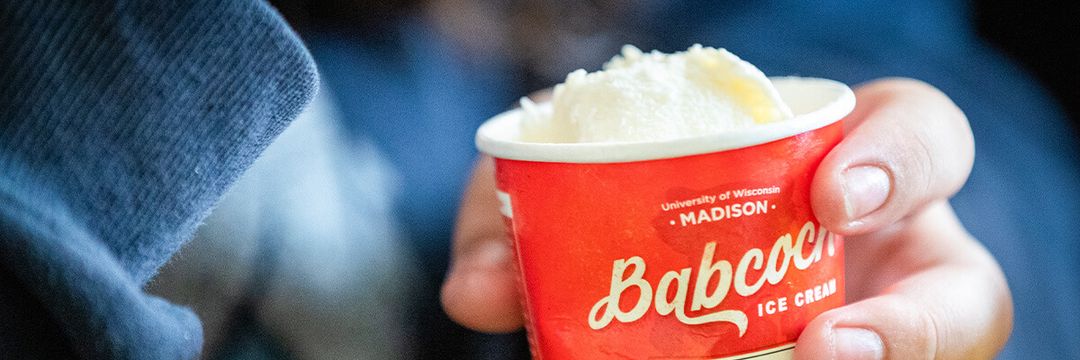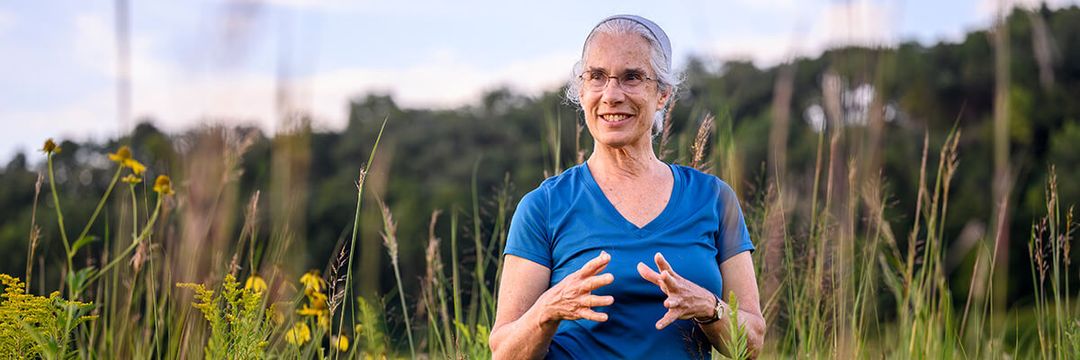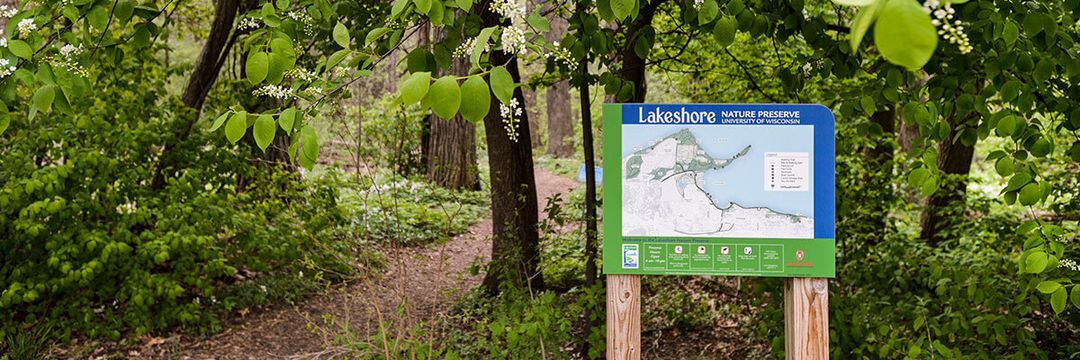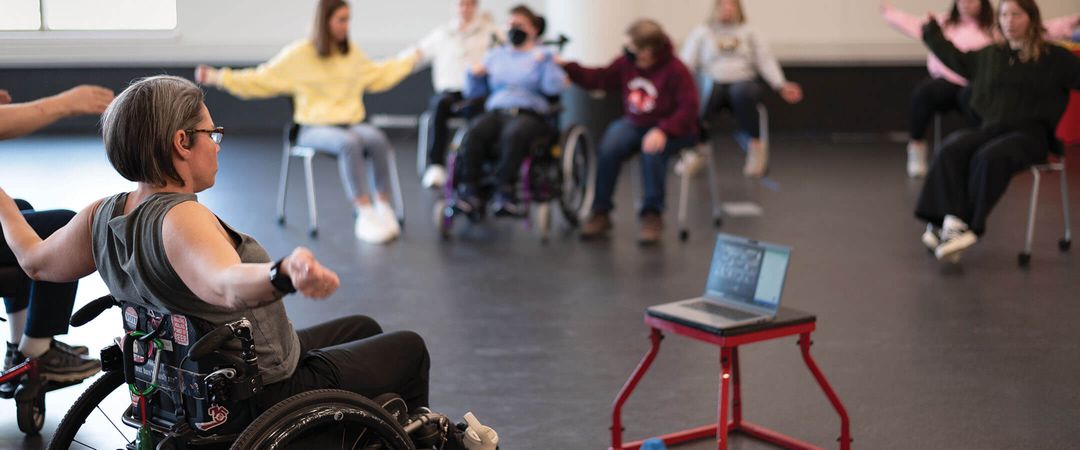The title “genius” is a bit daunting, but it’s truly fitting for landscape ecologist Lisa Schulte Moore PhD’02, who won a MacArthur Foundation Fellowship, or “genius grant,” in 2021 — a $625,000 investment in the future of her work. Moore is currently a professor in the Department of Natural Resource Ecology and Management at Iowa State University, where she works closely with farmers to design sustainable and resilient agricultural systems. For example, Moore helped create the STRIPS program: Science-Based Trials of Rowcrops Integrated with Prairie Strips. Strips of native perennial prairie vegetation are embedded into crop fields to slow water movement off fields and prevent soil and nutrient loss. During a visit to the UW this year, she shared her journey from western Wisconsin to pioneering research at the intersection of agriculture and ecology.
Tell us about your roots. Where did you grow up?
I grew up in Eau Claire, Wisconsin, and attended Eau Claire North High School. My family has deep ties to the area — we have a family farm just south of Eau Claire, near Allen, Wisconsin. When I was a child, my great-grandmother lived there, and it was a working dairy farm. Both my grandparents on my maternal side grew up on dairy farms. But the eighties hit, and our family lost our farms. We were a part of the tragedy of that farm crisis.
That must have been incredibly traumatic.
Very traumatic. But there’s a silver lining. When my folks were taking a country drive in the early 2000s, they found the original home site where my ancestors settled in 1869 for sale — just 40 acres at that point — but they bought that property and we’ve expanded a little bit over time. It is such a special place for my family. My husband and I were married there.
How has that family farm influenced your work?
It has really helped me understand the farmers that I work with. I understand the strong connection to place in a way that I don’t think I would fully appreciate if we didn’t have a family farm.
You’ve compared yourself as a scientist to a jazz musician playing in a band. Why is that?
I like the analogy because I am a collaborator. I don’t do sole investigator studies. I’m constantly collaborating with people in different fields: agronomy, hydrology, economics, sociology, all sorts of engineering fields, and sometimes artists, too. I love it when we come together, and we all start riffing off each other’s themes. It’s the absolute best time as a scientist. You carry the melody for a little while, and then it’s like you start to peter out on the questions or something, but then somebody else gets the spark and they take it to the next level. That makes us like musicians in a band. That’s my happy place.
What’s your favorite aspect of your work?
I really love working with farmers on their land. Being able to do science on farmers’ fields is my favorite thing. I’ve developed really wonderful rapport with a bunch of farmers, and I feel honored that they’re willing to let me and my students and collaborators onto their land to investigate some really important science questions. And it just tickles me that they’re interested in the science results. They’re the experts of their own operations, but it’s really wonderful that they want to learn new things and contribute to broader understanding by allowing investigators onto their farm.
Can you tell us about some of your current projects?
I’m currently involved in three major projects. The STRIPS project is looking at prairie strips on commercial farms and understanding how they’re providing benefits on farmers’ fields and interacting with the crop. There is another project we’re calling Grass2Gas, which looks at the potential to harvest the material from prairie and turn it into usable energy to power society. The third project is called Horizon II, which was awarded an $80 million USDA Climate-Smart Commodities grant, so it’s a big one. Roeslein Alternative Energy, a commercial partner I work with, is the lead on this. They are building a commercial pilot around the Grass2Gas idea and my university team is providing technical input and also independent measurement, monitoring, recording, and verification. So we’re not just working in laboratory or on a university farm; but we’re working with farmers and farmland owners to establish prairie on their farms, harvest it, convert it to energy, and sell the energy and associated environmental attributes. It’s really hard and complicated work, but also important and fun.
How did winning the MacArthur Fellowship impact your career?
It’s a huge honor and validated my approach of following my curiosity into different areas of science. I left the University of Wisconsin–Madison as a forester, and now spend all of my time thinking about agriculture. So, I really shifted career trajectories, whereas most people stick to the same path.
What advice do you have for budding scientists?
There are just so many cool things that you can do with your life. It’s really awesome when you stop to think about it. I encourage my students to be curious, lean into challenges because that’s how you learn and grow, and don’t forget to make time for fun!
